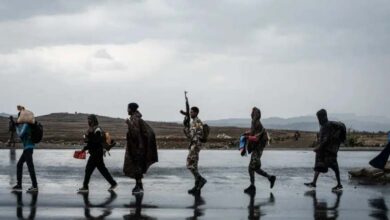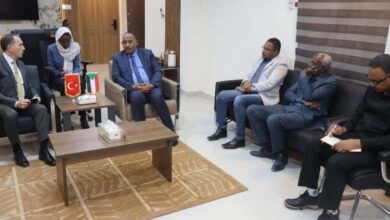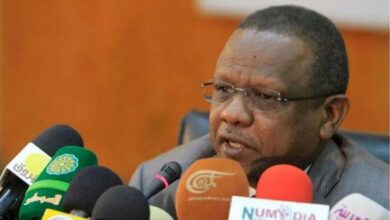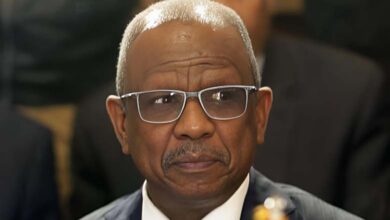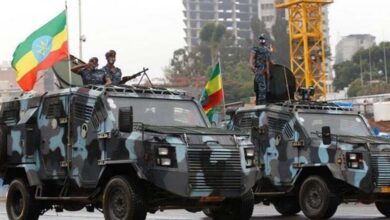Egypt moves to counter Brotherhood influence in Eastern Europe
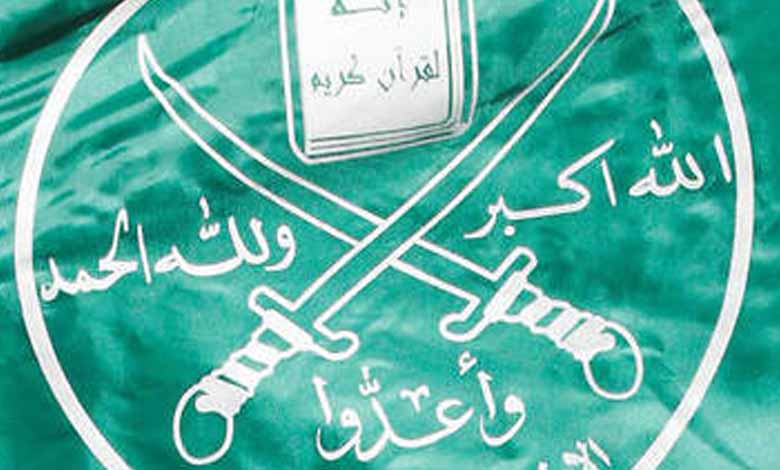
Egypt is working to strengthen its ties with Serbia’s Muslims as part of efforts to strengthen its influence in the southeast European country, where Egypt’s ambassador to Belgrade, Basil Salah, met with the Grand Mufti of Serbia and the head of the Muslim community, Sheikh Mustafa Yusuf Sibaic, on 16 November.
Salah told the meeting that Cairo plans to send religious envoys to Serbia and allow Serbian Muslim students to study at Al-Azhar in Egypt. He added that Serbian Muslim leaders would be invited to participate in Egyptian religious conferences.
EGYPTIAN MOVES
Monitor website, the American website, confirmed that the Egyptian breakthrough towards the Muslims of Serbia comes at a time when Cairo is working to counter the growing influence of the Muslim Brotherhood in neighboring Kosovo, where Kosovo became a safe haven for the leaders and elements of the group after their siege and fall in the Middle East. In a report issued in May 2021, Al-Arabiya noted that Kosovo could become a safe haven for members of the Muslim Brotherhood residing in Turkey after the recent Turkish-Egyptian rapprochement.
According to the American website, President of the Muslim Brotherhood Mohamed Morsi paid special attention to Kosovo during the year the group took over the rule of Egypt, and provided support in its years-long crisis with Serbia before declaring its independence in 2008. In June 2013, when the Muslim Brotherhood was still in power in Egypt, Cairo recognized the independence of Kosovo from Serbia. However, Egypt’s position changed after President Abdul Fattah El-Sisi took office and froze Cairo’s recognition of Kosovo. In 2015, Cairo abstained from voting on Kosovo’s membership in UNESCO.
Group Exploitation
According to Monitor, during el-Sisi’s visit to Belgrade in July, the two countries agreed on a deal for Serbia to export wheat to Egypt during the Russo-Ukrainian War. The two officials also discussed cooperation in the fields of energy and natural gas, in this context Sameh Eid, researcher of Islamic movements, said: “Egyptian moves towards the Muslim community in Serbia were required in light of Egypt’s increasing support for Serbia in its crisis against Kosovo, which was supported by the Muslim Brotherhood”. He added: “The ruling regime in Egypt is aware of the influence and power of Islamist groups, which is the Muslim Brotherhood in Kosovo”, noting that the Muslim Brotherhood is trying to convince the Arab public that Egypt has abandoned Muslims but Cairo is responding with initiatives for Muslims in Serbia. Through this support, Egypt is also seeking to strengthen cooperation with Serbia to protect the Muslim minority and prevent any Islamist groups from being present in Serbia and to exploit political issues for their benefit.
The U.S. website pointed out that Muslims in Serbia are a minority of just over 3% of the total population of 7 million, according to the last census conducted in 2011. “Egypt is interested in all aspects of cooperation with Serbia, especially on the economic level,” said Norhan El Sheik, a political science professor at Cairo University, “Enhancing Egyptian influence in Serbia requires strengthening religious and cultural cooperation,” and explained that “Serbia is also important for Egypt to import wheat in light of the Russian-Ukrainian war and the world’s need for alternative sources of wheat and grain”.


